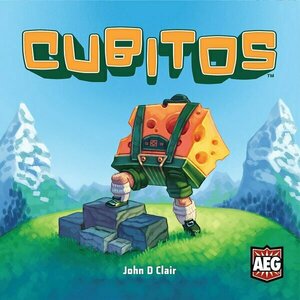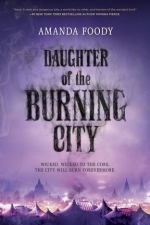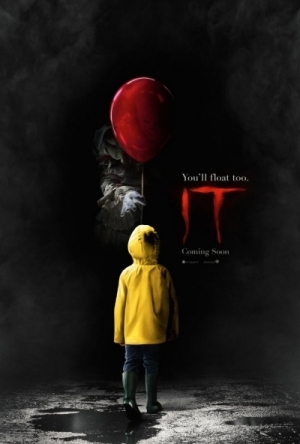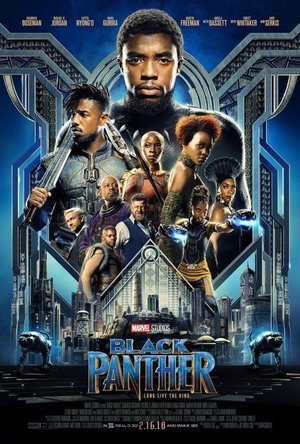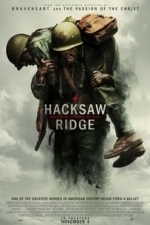
Translate 2 for Safari - Translate & Speak Web
Business and Utilities
App
Translate 2 for Safari - Translate & Speak Web (TranslateSafari 2 - Translate & Speak Extension for...

Bedtime Stories For Children
Education and Book
App
**** 180+ New Stories Added **** Story time is learning time with 'Stories For Children: Bedtime...

Paint Sparkles Draw
Education and Games
App
~~~ Top selling education app! Over 11,000,000 downloads around the world! ~~~ ~~~ No.1 Kids...
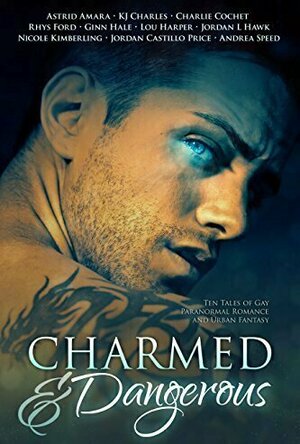
Charmed & Dangerous
Book
Magic takes many forms. From malignant hexes to love charms gone amok, you’ll find a vast array of...
Urban Fantasy Paranormal MM Romance
Purple Phoenix Games (2266 KP) rated Cubitos in Tabletop Games
Mar 17, 2022
Cubitos is a push-your-luck, dice building, racing game for two to four players. In it, players have runners that will be moving around a crazy race track, and another runner who keeps track of fans (the manager maybe?), and the first player’s runner to cross the finish line will be the winner! Now, managing movement and special abilities is where the game REALLY is, and it all boils down to which special dice are purchased and used, and whether Lady Luck will find favor or not. It’s a wild ride, so prepare your runner and let’s go!
To setup, place out one of the double-sided Racetrack boards, along with the Fan Track board. Runners for each player are placed at the Starting Line on the Racetrack board, and the other on the bleachers of the Fan Track. Each player receives a color-coded Player Board and nine gray starting dice. They receive a Phase Token to keep track of each phase in a round, and the starting player receives the Start Player Die. Each dice box is placed around the boards with the dice on top. All corresponding cards for each die type is placed by the dice box, and the game may now begin!
DISCLAIMER: We have adopted an unofficial variant/house rule that differs from the rules because we find it works better for us. During the phases where all players may play simultaneously we instead just have each player take a turn individually. -T
A turn in Cubitos is divided into two main phases with several sub-phases for each. During the main Roll Phase, players will first Draw dice from their personal Draw Zone (on the Player Board) and place them into the Roll Zone. Initially, players will have a hand size of nine, but that may be adjusted as the game progresses. Once the dice have been drawn the player then Rolls their dice. Every die face showing an icon is counted as a Hit, and every die showing a blank face is considered a Miss. All dice showing Hits are moved to the Active Zone of the board, and the player then decides if they wish to Push (their luck) and re-roll all the Misses in hopes of more Hits, or if they are done rolling. Once a player re-rolls their Misses, if the result is all Misses, the player Busts and must move ALL rolled dice to the Discard Zone on their board. However, players may continue to roll all Misses until they Bust or are content and stop.
The Run Phase then begins with players resolving their red die icons (crossed swords for attacks), and determining their other icons rolled for coins and movement. Feet icons (and certain dice special abilities) provide players with movement along the Racetrack board, and coins provide the player with purchasing power to buy new dice. Once a player’s Runner has landed on a reward spot on the board, the player receives the benefit and moves all dice used this turn to the Discard Zone on the Player board.
Every time a player Busts, or lands on a Fan icon on the Racetrack, the other matching Runner on the Fan Track board will move one spot along the track, and the player receives the benefits of the new space. These benefits are either an increase in hand limit of dice drawn, or more purchasing power in the form of credits. Reward spaces on the board could give players extra dice for free, allow players to remove dice from their collection, or even gain credits to be used at any time. The game continues in this fashion of each player taking their turns until one player crosses the finish line and wins!
Components. This box is chock full of tasty components that we all just adore. The boards and cards are all good quality and feature some fantastic art, and the custom dice are just so fun to handle. A truly ingenious use of folding arts is used when setting up all the dice boxes. Not only are they used in-game to remind players what icons are on each die face, but they also hold the dice during play, and store the dice in the box. I mean, triple duty dice boxes are where it’s at! Everything is super colorful and just a joy to play with each time. My one quibble is the very offensive block of cheese on the box cover. I am a big Chicago Bears fan, and seeing something so proudly displayed that even remotely resembles an homage to the Packers is such a shame to me. I really hope that wasn’t intentional, but I am also joking. Mostly.
The absolute best part about this game is the selection of action cards associated with each special set of dice. For example, the purple dinosaur dice could be paired with seven different cards, each with different abilities when the icon is rolled. Each color has a seven card deck, from which a card could randomly be used each game. The rulebook also offers 10 suggested combinations of cards, and also invites players to choose their own combos. This reminds me of a similar mechanic I first saw with the Dice Masters system, where each die’s faces could mean something completely different depending on the card associated with it. I loved that mechanic back then, and I do now as well.
I cannot believe I passed on this game for as long as I did. I mean, I like AEG-published games. We have reviewed John D. Clair games positively: Mystic Vale, with Custom Heroes and Space Base coming soon. Was it a subconscious dislike for the dumb cheese man on the cover? I am not too sure, but I am clearly glad to have it now. The cool dice. The interesting theme. The multi-use dice/card components. The fact they included both orange and purple dice. Am I into racing games now? The reasons are plentiful, and I just cannot wait for my next play of Cubitos. Maybe I can get my wife into it and it can be a staple in our rotation.
There are several other little rules that I did not mention here, but all in all I have had a blast every time I play Cubitos. I was certainly correct in wanting to add it to my collection, and having Josh teach Laura and me originally just adds a unique personal touch to the game for me. Creating lasting memories is a big reason I am so into board games in the first place, and I think Cubitos will hold a special place in my heart simply because I was able to play it with my best friends. They agree with me that this is a special game, and Purple Phoenix Games gives this a nonsquare 16 / 18. If you see this at your LFGS I highly recommend you pick up a copy. Don’t wait, like I did, because when you do get around to it, they just may be out of stock. And a suggestion: because the cheeseperson is wearing lederhosen, just refer to them as a great German friend. AND THAT’S IT. Go Bears.
Kyera (8 KP) rated Daughter Of The Burning City in Books
Jan 31, 2018
I didn't feel that the magic system was as developed as it should have been, or perhaps it was too developed. It wasn't always clear what people could have as abilities. The added element of being able to have multiple abilities that alter how each other works or each ability manifesting itself completely differently in people made following how the magic worked very difficult. There were also rules or examples that you read that seem to contradict one another. You just had to accept that it wasn't entirely clear and anything could happen.
The setting was certainly the most intriguing part of this story. The Gomorrah Festival, also known as the City of Burning Desires, is a traveling Carnival full of thieves, strumpets, charlatans, performers and fortune tellers. The gates of the city have ever burning flames and the cloying scent of smoke, perfume, and sugar cloak the tents. Amanda Foody's writing brilliantly brings the city to life, although we sadly see very little of the actual Festival. I loved the performance elements of the Night Circus and Caraval, so I was a little disappointed that the locale didn't play a bigger role.
I never really connected with the main character, Sorrina, our thread through the entire story. She is a magic worker who can create illusions with her mind, despite having no eyes to see for herself. Since coming to the Festival, she has begun creating illusions to become her family. They perform with her and despite not being truly real, are quite beloved by Sorrina. Unfortunately, one night a member of her illusion family is killed - but how can illusions be killed?
Sorrina vows to discover who hurt her family and protect the remaining members no matter what. Soon she meets an Up-Mountainer named Luca who is definitely the best character in the book. At first, he seems like the stereotypical sassy, "bad boy" love interest, but he is actually incredibly intelligent. I really enjoyed the dimension he brought to the story and how he balanced out Sorrina's more romantic, unfocused, indecisive character.
Despite the fact that Sorrina's family are illusions, they do feel like real people. Some are more developed than others. You feel for two of her sisters, one who bears the weight of the family on her shoulders and the other who just wants to be a real person. Those two will tug at your heartstrings and make you forget that they are illusions. I didn't feel like I got to know the other family members as well and that was a shame. They were such unique creations that they deserved that connection and time.
The story was fantastical, yet I enjoyed the mystery element as you puzzled through the clues with the characters to discover who killed an illusion, and how. The plot was a little convoluted so at times my attention waned, but overall I enjoyed the book. There were some pacing issues that could have been resolved by some additional editing/culling of scenes. Sometimes when I sat down I was completely engrossed in the plot, but there were also others where I picked the book up and put it down moments later.
I felt that the story was tied up satisfactorily and it didn't leave me with too many questions, but I won't lie and say I wouldn't enjoy another book set in that world with different characters. The level of development is still impressive for a debut novel and I cannot wait to see more from Amanda Foody.
I would definitely recommend this to young adult/teen readers who enjoy fantasy novels with really intriguing worlds, but don't expect too much of the carnival element to be present in the plot.
BankofMarquis (1832 KP) rated It (2017) in Movies
Feb 14, 2018
But...is it scary? Sure...scary enough, but this adaptation of Stephen King's bestseller is much, much more than a scary movie.
One of the best screen adaptations of a Stephen King book, ever, IT tells the story of a group of13 year olds in Derry, Maine (one of the main towns featured in a variety of King's stories). It is 1989 and children have been going missing at an alarming rate. The adults in the town seem impassive about this, and when the younger brother of one of the gang goes missing, this "Loser's Club" investigates. What they find is a horrifying evil at the center of it all.
Like the plot of this film, there is much, much more going on in this film than what that last paragraph suggests, for this story is not only about the mystery of the missing children, it is a loving look back at childhood, friendship, caring and bonding. Think of this film as STAND BY ME meets...well...a killer clown.
And the clown IS killer. As played by Bill Skarsgard (TV's THE CROWN), Pennywise The Dancing Clown is slyly sinister, drawing the children in as a spider would a fly. It is only when the children are close (and alone) does he drop the guise of niceness and pounce. This is an intense and terrifyingly terrific performance, keeping the fine line between realism and camp (a line that Tim Curry trounced all over in the TV Mini-series version of this material in the 1980's).
I'm a big fan of Stephen King's writing (having read nearly all of his books and short stories) and I walked out of the theater thinking "finally, someone figured out the right way to make a Stephen King thriller work on the screen" and that someone is Director Andy Muschietti (MAMA). He guides this film with a strong hand, not wavering in his vision or sense of purpose as to where (and how) he wants this story to go. He let's the young actor's lead this story, with Skargard's clown pouncing every now and then. This works well, especially when infusing something that is sorely lacking, typically, in these types of films - humor.
And the humor, mostly, falls into the hands of Richie Tozier (Finn Wolfhard, STRANGER THINGS). He is an absolute bright spot injecting just the wrong (or maybe it is right?) comment in a tense situation, just as a 13 year old boy would do. As part of the "Loser's Club", he holds a bright spot in keeping things together when the mood threatens to get too grim or dire. And grim and dire is what is following this set of "Loser's", a veritable "who's who" of loser stereotypes. There is the "fat kid", Ben Hanscome (Jeremy Ray Taylor, ANT-MAN, in a sweet performance), the "always sick kid with the overbearing mother", Eddie Kasbrak (Jack Dylan Grazer), the "Jewish kid", Stanley Uris (Wyatt Oleff) and the "Black Kid", Mike Hanlon (Chosen Jacobs).
But the heart and sole of this film is the two main leads of the "Loser's Club", Bill Denbrough (Jaeden Lieberher, star of two criminally under-viewed gems MIDNIGHT SPECIAL and ST. VINCENT) and Beverly Marsh (Sophia Lillis, a relative newcomer that bears watching in the future). Both are harboring deep, emotional scars - Bill blames himself for the death of his brother by Pennywise and Beverly is (wrongly) viewed as a 13 year old slut by school rumor and innuendo and is sexually harassed by her father. The relationship between these two and the rest of the Loser's Club is the real treat of this film and the actor's are up to the challenge to draw us in and care about what happens to them when they are, ultimately, separated and confronted by Pennywise.
I was surprised by how little graphic gore there was in this film (though there is plenty of blood) and there is a little too many "jump scares" for my taste, but these are quibbles for a very good, very intense "scary film".
I floated out of the cinema after seeing this film You'll float too.
Letter Grade: A-
8 (out of 10) stars and you can take that to the Bank (ofMarquis)
BankofMarquis (1832 KP) rated Black Panther (2018) in Movies
Feb 19, 2018
The answer: Good Enough.
Diving deeper into the character/hero T'Challa/Black Panther (Chadwick Boseman) who was first introduced in CAPTAIN AMERICA: CIVIL WAR. In this film, we learn more about the backstory of this man/character as well as the world in which he lives and the burdens he bears. It also, interestingly enough, pretty much ignores the rest of the Marvel Cinematic Universe for much of it's 2 hour 14 minute timeline. It mostly concerns itself with interior issues in the hidden kingdom of Wakanda and I think this tactic is a welcome relief from the giant, CGI-laden, characters-heavy Marvel films of recent memory.
Director/Writer Ryan Coogler (CREED/FRUITVALE STATION) decides to focus the attention of this film inward, rather than outward and we are rewarded with a rich, Shakespearean family drama that works because of it's simplicity.
Much of the effectiveness is due to the charismatic cast that has been drawn to this picture because of the significance of it as well as the richness of the characters they inhabit. Bozeman is regal and strong in the title role - no hint of the suffering, "I don't want this" SuperHero angst so often seen in these types of film. Academy Award winner Lupito Nyong'o joins in just as strong and independently as Nakia a "Spy" and erstwhile romantic foil for T'Challa - though Coogler is wise to avoid the "will they/won't they" cliche as well as eliminates, entirely, the "damsel in distress" subplot that would have been so tempting.
Helping these two out are a veritable "who's who" of actors of color - Angela Bassett, Forrest Whitaker, current Best Actor nominee Daniel Kaluuya and Sterling K. Brown - all turn out for fun (albeit brief) turns where each one of them gets a chance to show what they can do. Special notice should be made to Danai Gurira (TV's kick-ass Michonne in THE WALKING DEAD) as Okoye - T'Challa's chief general and bodyguard who must choose duty over honor (or does she) and, especially, Letitia Wright as T'Challa's younger, wise-cracking sister - who also happens to be the "Q" of this film. She jumped off the screen and shone brightly (but not so bright as to wash things out) in every scene she was in.
And...of course...there is Coogler favorite Michael B. Jordan (he's been in all of Coogler's major motion picture) as the villain of the piece - Erik Killmonger (the name says it all). Jordan does a nice job of bringing 3 dimensions to a character that was written a little too 2 dimension-ally, if you ask me. This character could have just been an "angry young man" cliche, but with Jordan, he becomes something much, much more.
This being a Marvel SuperHero film, the Special Effects are terrific, showing a highly secretive, highly technolized Wakanda that is hidden beneath the surface.
Is it a perfect film? Well...no. This is, in essence, a "family drama" with some hi-tech action scenes and the obligatory "two armies fighting" finale, and while the acting is good enough to hold interest throughout, I would have liked to have seen a little more action thrown in.
But...ignoring the rest of the Marvel Cinematic Universe was a good move - as was casting such strong, believable and likeable film actors.
Letter Grade: A-
8 (out of 10) stars and you can take that to the Bank(ofMarquis)
Gareth von Kallenbach (980 KP) rated Arctic (2019) in Movies
Jul 2, 2019
A lone man identified only as Overgård (Mads Mikkelsen) has crashed his cargo plane somewhere in the arctic. We don’t know how long he has been stranded there, but long enough for him to have carved out a giant S.O.S in the snow. He has converted his downed plane into his new home and goes about the same routine every day. He sets his watch alarm to keep his schedule, which involves catching fish through the ice, and setting out in a different direction each day to manually wind his transponder in the hopes that a rescue will finally come.
One day, a day like countless days before it, Overgård’s transponder turns from red to green and in the distance a helicopter appears. His lucky day soon turns into tragedy as the harsh winds of the Arctic toss the helicopter around like a kite in a hurricane, crashing it to the ground. Overgård quickly runs to the crash site only to find that one of the pilots has died in the crash, and the other (Maria Thelma Smáradôttir) is barely conscious and has a gaping wound in her side. In a scene that could almost be described as humorous (if it wasn’t for the dire situation itself), Overgård crafts a sled out of the helicopter’s sliding door to carry the woman back to the safety of his plane, only to find out the next day that inside the helicopter was an actual rescue sled.
Sadly, it isn’t long before the young pilot’s wound begins to fester that Overgård must make a choice. Stay in the little slice of heaven that he has carved up for himself or risk the forces of nature in an effort to save the woman’s life. With a map he recovered from the downed helicopter, Overgård is able to identify an outpost and carefully plots out the journey that will take them there. The journey he plans for will take several days and has numerous obstacles to overcome. Yet, with a heart that clearly is as large as the vastness of the arctic itself, he realizes he has no choice.
Arctic is a movie with very little dialog, other than an occasional comment to himself or an attempt to rouse his unconscious guest. For a movie that says so little it’s the atmosphere that says so much. The film attempts to capture the harsh conditions that Overgård faces along his journey and does it so brilliantly that you can almost feel the icy weight as it bears down. The audience struggles with every wintery step as if they are not only spectators, but active participants in the journey. The scenery is as awe inspiring as it is deadly. The music seamlessly blends into the environment to a point where you are aware it’s there but doesn’t break the immersion.
Arctic could almost be mistaken as a documentary, a film about one mans survival in one of the most inhospitable places on the planet. Its pacing is deliberate, even if it is a bit slow at times. There is little need to add extra flair or danger into the mix, because nature alone provides it in spades. Arctic is not a movie that will appeal to those looking for non-stop action. At its heart it is really a movie about man vs nature, and nature can be a beast all its own. Arctic is certainly a movie for those looking for something a bit different. For those who are looking for a survival movie that doesn’t take place on a deserted isle, then this is right up your alley. Arctic shows that sometimes realism is far more interesting than fiction.
Bob Mann (459 KP) rated Hacksaw Ridge (2016) in Movies
Sep 29, 2021
When a war film is described as being “visceral” then you know you need to steel yourself mentally for what you might see. But given that this film is based around the horrendously brutal combat between the Americans and the Japanese on the Pacific island of Okinawa in 1945 this is a warning well-founded. For the battle scenes in this film are reminiscent of the opening scenes of “Saving Private Ryan” in their brutality: long gone are the war films of John Wayne where there would be a shot, a grasp of the stomach and a casual descent to earth.
But before we get to the battle itself, the film has a leisurely hour of character building which is time well spent (although it could have perhaps been trimmed a tad tighter). Desmond Doss (Andrew Garfield, “The Amazing Spiderman”, “Never Let Me Go”) grows up a God-fearing youngster in the beautiful surroundings of the Blue Ridge Mountains of Virginia. His alcoholic father (Hugo Weaving, “The Lord of the Rings”, “The Matrix”) has been mentally traumatised by the First World War, further strengthening Desmond’s fervent belief in following the Ten Commandments; most notably “Thou Shalt Not Kill”. But his patriotic sense of duty is also strong, and Doss signs up after Pearl Harbor and is posted to a rifle brigade that – given his refusal to even touch a rifle – puts him on a collision course with the US Army. It also (obviously) disrupts his romance with nurse sweetheart Dorothy (Teresa Palmer).
This is really two films in one, with the first half setting up extremely well the characters that make the second half so effective. For you care – really care – for what happens to most of the characters involved, especially the zealous and determined Doss who has nothing to face the Japanese hoards with but a medical bag. The feelings that comes to top of mind are awe that these real people actually had to go through this horror and hope that in today’s increasingly unstable political world we will never need to again face such inhumanity of man against man again.
Andrew Garfield really carries this film, and his Best Actor Oscar nomination is well-deserved. He is perfectly cast as the (onward) Christian soldier. Also outstanding is Hugo Weaving in an emotional and persuasive role playing opposite Rachel Griffiths (“Saving Mr Banks”) his wife. But the real acting surprise here for me was Vince Vaughn (“The Wedding Crashers”) who plays the no-nonsense platoon Sergeant Howell: never one of my favourite actors, here he brings in a warm and nuanced performance that ends with a memorable action scene.
Also worthy of specific note is Dan Oliver (“Mad Max: Fury Road”) and his team of special effects technicians, the stunt teams (led by Kyle Gardiner and Mic Rodgers), production designer Barry Robinson and the hair and makeup team, all of who collaborate to make the final half of the film so gripping.
The film marks a comeback from the film society ‘naughty step’ of Mel Gibson after his much publicised fall from grace in the mid-noughties. A Best Director Oscar nomination would appear to cement that resurrection. For this is a phenomenal achievement in direction and one that should be applauded.
The film bears closest comparison with the interesting two-film combo from Clint Eastwood – “Flags of our Fathers” (from the American viewpoint) and “Letters from Iwo Jima” (from the Japanese viewpoint). While all three films share the same blood and guts quotient, with “Hacksaw Ridge” edging this award, the Eastwood films tend to have more emotional depth and a more thought-provoking treatment of the Japanese angle. In “Hacksaw Ridge”, while the war crimes of the Japanese are clear, the war crimes of the Americans are quietly cloaked behind a cryptic line (“They didn’t make it”).
That being said, there is no crime in a rollicking good story well told, and “Hacksaw Ridge” is certainly that. This was a film I did not have high hopes for. But I was surprised to be proved wrong. Recommended.
